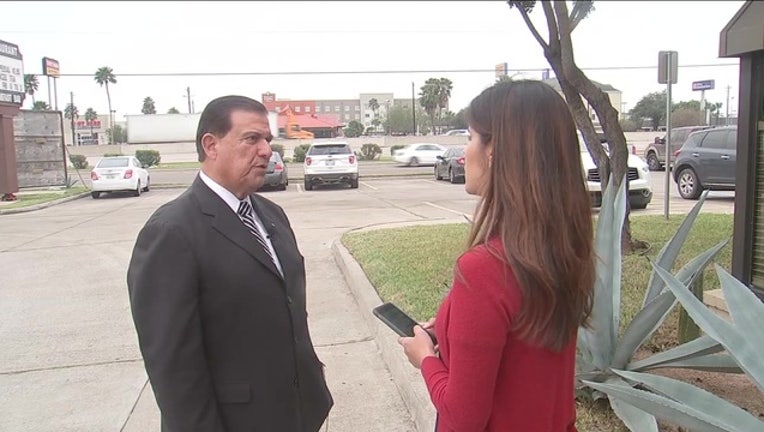Brownsville family members say border fence forced them to close thriving business

BROWNSVILLE, Texas (FOX 26) — Freshman Congressman Dan Crenshaw (R-TX) visited the southwest border for the first time as a legislator. His first tour with border patrol agents was to see fencing in Brownsville.
"In 2006, under the Secure Fence Act, we built 55 miles of fencing here in South Texas," explained Deputy Chief Raúl Ortiz with U.S. Customs and Border Protection. "We started on our east side because that was our busiest area." He said the Brownsville area has the least amount of illegal crossings in the Rio Grande Valley sector.
"It accounts for about six percent of our traffic," added Ortiz.
"The Brownsville area is a great example of how it should be done," said Crenshaw, referring to the fencing and technology along the approximately one mile stretch of fencing he saw. The fence ran from Alice Wilson Hope Park to the Fort Brown Memorial Golf Course.
"Washington needs to listen to the people at the border," said Eddie Lucio Jr. His brother, Robert Lucio, operated the golf course for almost 28 years.
It closed in 2015, a few years after the fence was built.
"[Robert] was just broken in two because they placed a wall to the north of the golf course," added Eddie. The golf course was between the fence and the Rio Grande.
Eddie is a Texas State Senator from Brownsville. The Democrat has served in the State Legislature since 1986.
Robert spoke with FOX 26 News by phone. He said he stopped speaking on camera because it is painful to recall how his business fell apart and his family was being targeted for speaking out.
Two years before Congress passed the Secure Fence Act, Robert said he invested more than $800,000 in the course, including renovating the clubhouse. He recalled how his business was thriving with hundreds of yearly members and weekly golf tournaments.
Robert also said he would see migrants crossing through the course, but they were never a threat to the golfers. He told FOX 26 that some of the people crossing would go to work in Texas and return to Mexico by the end of the day.
Robert said he believes it was the impression the fence gave that led to the downfall of his business and, eventually, filing for bankruptcy.
Eddie said the fence made no difference to his family's perception of safety.
"We live a very pleasant life here," said Eddie. "There's no fear in my household with my family and friends, neighbors about a crisis of any kind."
On top of preventing illegal crossings, Crenshaw said he believes barriers slow traffic down to give agents time to apprehend migrants and free up agents to do other work. He said he understands most of the migrants in the Rio Grande Valley are families and unaccompanied minors likely seeking asylum but considers this, in part, a sustainability issue.
"In the end, we have a finite amount of resources," said Crenshaw. "We would love to take the entire world and make them American. We would love that, but that’s impossible."
Eddie said he believes the money for the fence would be better spent elsewhere. He contended that Congress should put more focus on a guest worker program to promote legal immigration, but said the U.S. should not turn its back on those seeking asylum.
"These are people that have tremendous hardships," said Eddie. "They don't want to leave their mother country."
State Sen. Lucio said he believes politicians like Crenshaw who come to the border need to expand their visit and talk to local officials and residents.
Crenshaw said this was the first of many trips to the southwest border and he expressed that he is open to hearing from other communities on the border impacted by this issue.

